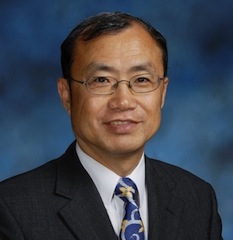The 2013 Hans Freudenthal Award

It is with great pleasure that the ICMI Awards Committee hereby announces that the Hans Freudenthal Medal for 2013 is given to Professor Frederick K. S. Leung of The University of Hong Kong, in recognition of his research in comparative studies of mathematics education and on the influence of culture on mathematics teaching and learning. His groundbreaking work, for which he is internationally known, is the utilization of the perspective of the Confucian Heritage Culture to explain the superior mathematics achievement of East Asian students in international studies such as the IEA Trends in International Mathematics and Science Studies and the OECD Programme for International Student Assessment. His research extends to the use of the same cultural perspective to explain characteristics of classroom teaching in East Asia, and more recently in explaining differences in teacher knowledge between East Asian and Western countries. His research has contributed significantly to the cultural perspective of mathematics education and has produced a framework for understanding the relation between culture and mathematics education.
Frederick Leung’s research and professional activities have had an important impact on policies and practices in mathematics education in East Asian countries and beyond. He has been a pivotal figure in promoting understanding between mathematics educators in the East Asian region and the rest of the world through, for example, his co-chairing of the 13th ICMI Study on “Mathematics Education in Different Cultural Traditions: A Comparative Study of East Asia and the West” and his numerous research publications in comparative studies of East Asia and the West. In the East Asian region, he has been instrumental in organizing the East Asia Regional Conferences in Mathematics Education and has been the liaison person in many initiatives of collaboration among mathematics education scholars in East Asia, and between scholars in East Asia and the West. Frederick Leung has been invited to be the keynote speaker in major mathematics education conferences in the region and around the world. He has also served on prestigious international committees, as well as on the editorial teams of the Second and Third International Handbooks on Mathematics Education.
Frederick Leung’s degrees include a B.Sc. (Mathematics) in 1977 and M.Ed. (Testing, Measurement and Evaluation) in 1984 from The University of Hong Kong, and a Ph.D. (Mathematics Education) in 1992 from the University of London, Institute of Education. From 1977 to 1982, he taught secondary school mathematics. He obtained the position of Lecturer at The University of Hong Kong in 1982, then Senior Lecturer in 1992, and Professor in 2006. Frederick Leung was awarded a Senior Fulbright scholarship in 2003 for research at UCLA and, from the Faculty of Education at The University of Hong Kong, both the Outstanding Researcher award in 2006 and the Outstanding Researcher Student Supervisor award in 2008.
Early in his academic career Frederick Leung became interested in comparative studies of mathematics education. His master’s thesis, part of which was published in Educational Studies in Mathematics (1987), compared the mathematics curricula in Guangzhou and Hong Kong. This research interest was further developed in his Ph.D. study where he compared the mathematics curricula of China, Hong Kong, and England. He found that the data could not be fully accounted for without reference to the similarities and differences among the cultures of the three sites. In the 1990s, Frederick Leung participated in the Third International Mathematics and Science Study (TIMSS) as Principal Investigator and National Research Co-ordinator for Hong Kong. He recognized that the cultural explanation he used for his Ph.D. research afforded an appropriate framework to interpret the superior performance of the East Asian countries in the TIMSS study. Equally important, this framework of interpretation provided East Asian countries with a basis for exploring their own mathematics education identity, described in his highly-cited paper: In Search of an East Asian Identity in Mathematics Education (2001).
Frederick Leung’s research evolved from comparative study of student achievement in mathematics to comparative study of mathematics teaching in different countries, and led to the extension of his cultural explanation of mathematics achievement to interpreting results of classroom studies. An early publication reflecting this direction was his 1995 article: The Mathematics Classroom in Beijing, Hong Kong and London. His subsequent involvement in two international classroom video studies, the TIMSS 1999 Video Study and the Learner’s Perspective Study, led to deeper development of his cultural perspective, as illustrated by his several publications related to these studies (e.g., Some Characteristics of East Asian Mathematics Classrooms Based on Data from the TIMSS 1999 Video Study, published in 2005). He elaborated further on the characteristics of the Confucian Heritage Culture in relation to mathematics teaching and learning in his scholarly presentation at the 2012 ICME-12 plenary panel. Frederick Leung’s impressive research contributions include 21 funded research projects and more than 60 books, book chapters, and journal articles.
Frederick Leung’s work has opened up a new dimension of looking at differences in mathematics achievement and classroom practices from the perspective of culture. His outstanding achievement in research, his contribution to mathematics education in the East Asian region, and his promotion of understanding between mathematics education communities in East Asian and western countries attest to the merit of Frederick Leung’s receiving the Hans Freudenthal Medal for 2013.